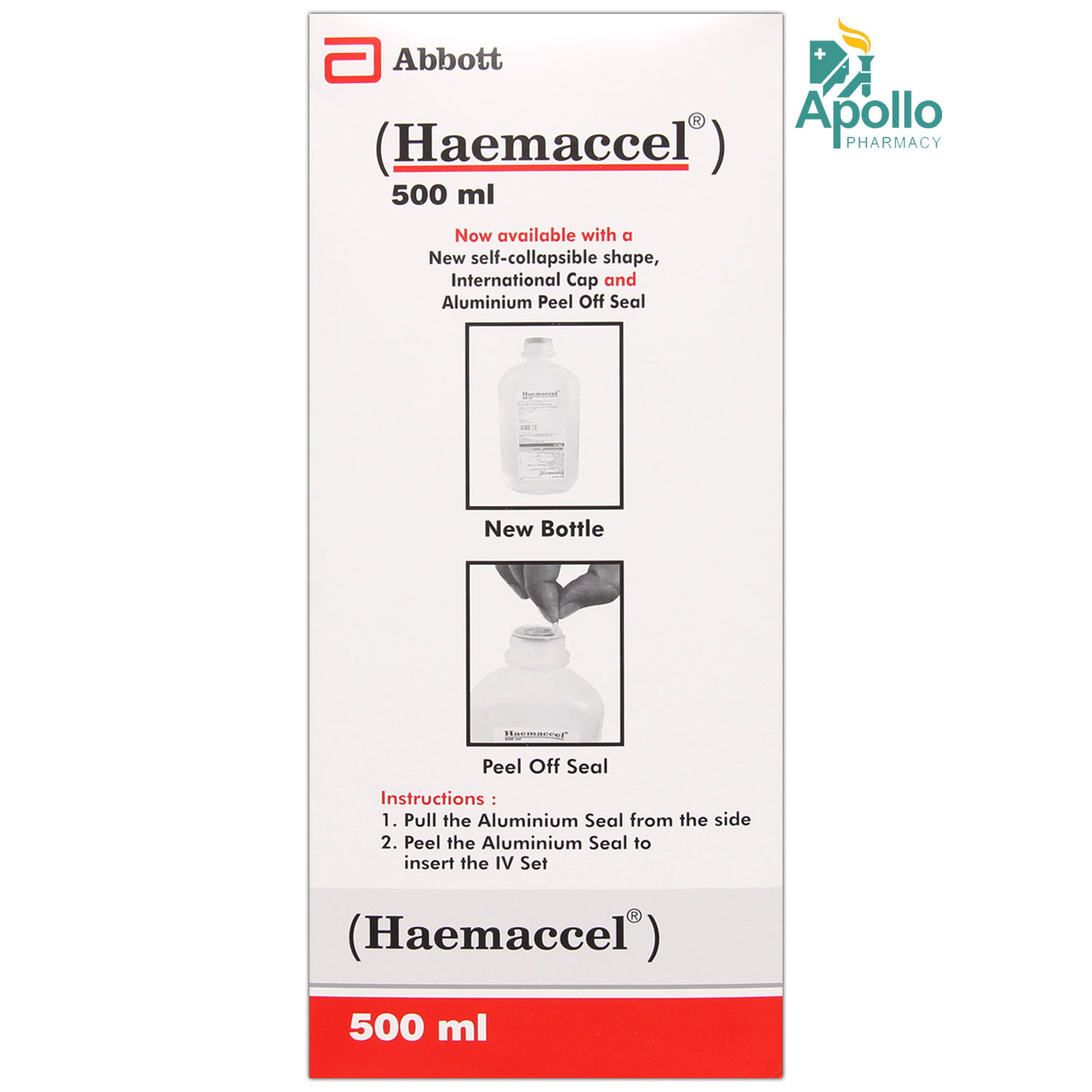Calcium Chloride Dihydrate+potassium Iodide+sodium Chloride
About Calcium Chloride Dihydrate+potassium Iodide+sodium Chloride
Calcium Chloride Dihydrate+potassium Iodide+sodium Chloride is used to prevent cataract-related complications and improves comfort by removing the sensation of a surface scratch and flushing out any remaining contaminating or harmful particles. It is particularly indicated when cataract surgery needs to be delayed in patients with diabetes (high blood sugar), uncontrolled hypertension (high blood pressure), severe respiratory problems, or severe bleeding disorders. A cataract occurs when the clear lens in the eye becomes cloudy, often due to aging or injury that alters the tissue structure of the lens, leading to blurred vision. Lenticular opacity refers to the clouding of the lens in the eyes, while PCO refers to the clouding of the back part of the artificial lens implanted in the eye during cataract surgery.
Calcium Chloride Dihydrate+potassium Iodide+sodium Chloride contains three mineral salts: Calcium chloride dihydrate, Potassium iodide, and Sodium chloride. Calcium chloride dihydrate works by increasing the calcium levels in the eye, thereby reversing calcium depletion caused by aging. Potassium iodide and sodium chloride work together to maintain the balance of potassium and sodium ions in the lens, thereby helping to preserve lens function and prevent cataracts caused by electrolyte imbalance.
Like all medications, Calcium Chloride Dihydrate+potassium Iodide+sodium Chloride may cause undesirable side effects; however, not everyone experiences them. The most common side effects of Calcium Chloride Dihydrate+potassium Iodide+sodium Chloride include blurred vision, dizziness, eye redness, irritation, and a burning sensation at the application site. Most of these side effects may resolve over time without requiring medical attention. However, if the side effects persist or worsen, please consult your doctor for advice.
Before using Calcium Chloride Dihydrate+potassium Iodide+sodium Chloride, inform your doctor if you are allergic to any of its components. If you are pregnant or breastfeeding, consult your doctor for advice before using Calcium Chloride Dihydrate+potassium Iodide+sodium Chloride. This medicine should only be used in children when prescribed by a doctor. If your symptoms fail to improve or worsen within a few days, consult your doctor for further guidance. Inform your doctor before using Calcium Chloride Dihydrate+potassium Iodide+sodium Chloride if you have any other eye conditions or suffer from kidney or liver problems.
Uses of Calcium Chloride Dihydrate+potassium Iodide+sodium Chloride
Medicinal Benefits
Calcium Chloride Dihydrate+potassium Iodide+sodium Chloride helps keep the eyes lubricated and soothed. It contains potassium iodide, which enhances absorption in the eye. Additionally, it aids in relieving irritation, itching, redness, and discomfort.
Directions for Use
Calcium Chloride Dihydrate+potassium Iodide+sodium Chloride is for ophthalmic use only. Lie down and tilt your head backward. Gently pull your lower eyelid with your index finger to form a pocket. Instil the number of drops as advised by your doctor into the pocket of the lower eyelid. Close your eyes for 1-2 minutes.
Storage
Side Effects of Calcium Chloride Dihydrate+potassium Iodide+sodium Chloride
- Blurred vision
- Dizziness
- Eye redness
- Eye Irritation
- Burning sensation at the application site
Drug Warnings
Do not use Calcium Chloride Dihydrate+potassium Iodide+sodium Chloride if you are allergic to any of its components. Consult your doctor for advice before using Calcium Chloride Dihydrate+potassium Iodide+sodium Chloride if you are pregnant or breastfeeding. Calcium Chloride Dihydrate+potassium Iodide+sodium Chloride should only be used in children when prescribed by a doctor. Inform your doctor before using Calcium Chloride Dihydrate+potassium Iodide+sodium Chloride if you have any other eye conditions or suffer from kidney or liver problems. If your symptoms fail to improve or worsen within a few days, consult your doctor for further guidance. Avoid touching the dropper with your bare hands when administering the drops to prevent contamination. You should remove contact lenses before using Calcium Chloride Dihydrate+potassium Iodide+sodium Chloride. If you are allowed to wear contact lenses, remove them before administration Calcium Chloride Dihydrate+potassium Iodide+sodium Chloride and wait 10 to 15 minutes before reinserting them. Calcium Chloride Dihydrate+potassium Iodide+sodium Chloride may cause dizziness and blurred vision, so avoid driving or operating machines until you are fully alert and your vision is clear.
Drug Interactions
Drug-Drug Interaction: No interactions were found/established.
Drug-Food Interaction: No interactions were found/established.
Drug-Disease Interaction: Inform your doctor before using Calcium Chloride Dihydrate+potassium Iodide+sodium Chloride if you have any other eye conditions or suffer from kidney or liver problems.
Drug-Drug Interactions Checker List:
Safety Advice

Alcohol
consult your doctorIt is not known whether alcohol interacts with Calcium Chloride Dihydrate+potassium Iodide+sodium Chloride. Please consult your doctor before consuming alcohol while using Calcium Chloride Dihydrate+potassium Iodide+sodium Chloride.

Pregnancy
consult your doctorThere is limited information available regarding the use of Calcium Chloride Dihydrate+potassium Iodide+sodium Chloride during pregnancy. If you are pregnant or planning to become pregnant, please consult your doctor for advice before using Calcium Chloride Dihydrate+potassium Iodide+sodium Chloride.

Breast Feeding
consult your doctorThere is limited information available regarding the use of Calcium Chloride Dihydrate+potassium Iodide+sodium Chloride in breastfeeding. If you are breastfeeding, please consult your doctor for advice before using Calcium Chloride Dihydrate+potassium Iodide+sodium Chloride.

Driving
cautionCalcium Chloride Dihydrate+potassium Iodide+sodium Chloride may cause blurred vision and dizziness. Therefore, avoid driving or operating machines until you are fully alert and your vision is clear.

Liver
consult your doctorThere is limited information available regarding the use of Calcium Chloride Dihydrate+potassium Iodide+sodium Chloride in patients with liver disease. Please consult your doctor before using Calcium Chloride Dihydrate+potassium Iodide+sodium Chloride if you have any history of liver problems.

Kidney
consult your doctorThere is limited information available regarding the use of Calcium Chloride Dihydrate+potassium Iodide+sodium Chloride in patients with kidney disease. Please consult your doctor before using Calcium Chloride Dihydrate+potassium Iodide+sodium Chloride if you have any history of kidney problems.

Children
consult your doctorThe safety and effectiveness of Calcium Chloride Dihydrate+potassium Iodide+sodium Chloride in children under 12 years of age have not been established. Please consult your doctor before using Calcium Chloride Dihydrate+potassium Iodide+sodium Chloride in children.
Habit Forming
Diet & Lifestyle Advise
- Consume plenty of vegetables and fruits, which are rich in minerals, vitamins, and antioxidants that support eye health.
- Avoid smoking and excessive alcohol consumption, as they can increase the risk of developing cataracts.
- Ultraviolet (UV) light from the sun can contribute to cataract development, so wear sunglasses that block UV rays when going outdoors.
- If you have diabetes or hypertension, manage and regularly monitor your blood sugar and blood pressure levels.
- Get regular eye check-ups to detect cataracts and other eye problems early on.
Special Advise
- If eye irritation persists or worsens after using Calcium Chloride Dihydrate+potassium Iodide+sodium Chloride, discontinue it and consult your doctor.
- Avoid touching the dropper with your bare hands or other surfaces to prevent contamination.
- Use Calcium Chloride Dihydrate+potassium Iodide+sodium Chloride within one month of opening the container. check the solution regularly and discard it if it becomes dark brown or cloudy.
Patients Concern
Disease/Condition Glossary
Cataract: A cataract occurs when the clear lens in the eye becomes cloudy, often due to aging or injury that alters the tissue structure of the lens. It typically starts with a small area in the lens and may not initially affect your vision; however, as the cataract grows, it can cloud more of the lens, leading to significant vision problems. Common symptoms include blurry or cloudy vision, difficulty seeing at night, seeing halos around lights, increased sensitivity to light, colors appearing faded or yellow, and needing frequent prescription changes to your eyeglasses or contact lenses.
FAQs
Calcium Chloride Dihydrate+potassium Iodide+sodium Chloride is used to prevent cataract-related complications, including preoperative lenticular opacity and postoperative posterior capsular opacity (PCO). It is particularly indicated when cataract surgery needs to be delayed in patients with diabetes (high blood sugar), uncontrolled hypertension (high blood pressure), severe respiratory problems, or severe bleeding disorders.
Calcium Chloride Dihydrate+potassium Iodide+sodium Chloride is composed of three mineral salts: Calcium chloride dihydrate, Potassium iodide, and Sodium chloride. Calcium chloride dihydrate works by increasing the calcium levels in the eye, thereby reversing calcium depletion caused by aging. Potassium iodide and Sodium chloride work together to maintain the balance of potassium and sodium ions in the lens, thereby helping to preserve lens function and prevent cataracts caused by electrolyte imbalance. Thus, Calcium Chloride Dihydrate+potassium Iodide+sodium Chloride helps slow down the progression of cataracts and supports the healthy nourishment of the lens.
The common side effects of Calcium Chloride Dihydrate+potassium Iodide+sodium Chloride include blurred vision, dizziness, eye redness, irritation, and a burning sensation at the application site. Most of these side effects may resolve over time without requiring medical attention. However, if the side effects persist or worsen, please consult your doctor for advice.
You are not recommended to wear contact lenses while using Calcium Chloride Dihydrate+potassium Iodide+sodium Chloride, as it may contain a preservative that may be absorbed by the contact lenses and change their color. Therefore, you are advised to remove your contact lenses before applying Calcium Chloride Dihydrate+potassium Iodide+sodium Chloride and reinsert them after 15 minutes.
Yes, Calcium Chloride Dihydrate+potassium Iodide+sodium Chloride may increase sensitivity to light. Therefore, you can wear sunglasses to protect your eyes from light sensitivity.
Yes, Calcium Chloride Dihydrate+potassium Iodide+sodium Chloride may cause blurred vision after applying it. Therefore, you are advised to avoid driving or operating machinery until your vision has returned to normal.
Available Medicines for
Calcium Chloride Dihydrate+potassium Iodide+sodium Chloride










